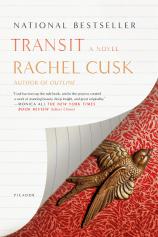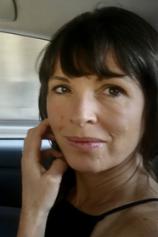Reading Group Guide
Discussion Questions
Transit

1. TRANSIT begins with an unnamed narrator describing an online solicitation for an astrological reading. What is her attitude toward the e-mail and the astrologer? Is it surprising that she purchases the reading? How does this turn out to be significant later in the book?
2. TRANSIT is structured as a series of interactions between the narrator and people she comes in contact with as she transitions from a marriage and a comfortable life in a country house to life as a single mother in a rundown London flat. What do we know about her ex-husband and her marriage? How do each of the other characters contribute to her transition?
3. How would you describe the narrator? Is she compassionate? Frightened? Successful? Cruel? What kind of mother is she? Is she ready for the changes she is facing or is she in survival mode --- simply doing her best to cope?
4. Who is Gerard? Do you think the narrator is fair in her description of him? Why did she leave him? How has he changed?
5. The narrator purchases a home in need of extensive renovation. Her downstairs neighbors live in squalor, while the people next door seem to be a happy family with an orderly and attractive home. What does the narrator mean when she observes: “It seemed so strange that these two extremes --- the repellent and the idyllic, death and life --- could stand only a few feet apart and remain mutually untransformed”? How is this motif repeated in other sections of the book --- at the hair salon, the literary festival, her cousin’s house in the country?
6. While the narrator is visiting Paula and John, her downstairs neighbors, she notices a large photograph of an attractive young woman, which she slowly recognizes as Paula. What possibilities might this suggest?
7. The narrator frequently describes a sense of unreality experienced by herself and others --- a feeling of watching actors on a stage or of being an actor. “He knew all the actors --- as soon as he went inside he became one of them,” Gerard says of the people he and Diane lived with in Toronto. The narrator responds that her older son had told her that moving back to London “felt like he was acting a part in a play.” What are other examples? What causes this sensation?
8. The idea of freedom comes up repeatedly. What are some of the ways freedom is described? What are its consequences? What does the narrator mean when she tells her cousin Lawrence that freedom “is a home you leave once and can never go back to”? When driving in heavy fog to visit him and his wife, why does she say that “the feeling of danger was merged with an almost pleasurable sense of anticipation, as though some constraint or obstruction was about to be finally torn down, some boundary broken on the other side of which lay release.”
9. Would you describe TRANSIT as a funny book? What are some comic elements?
10. What is the nature of the obsession the writing student Jane feels for the painter Marsden Hartley? What is it about his life that makes her identify with him and compels her to write about him? Does the narrator, her writing teacher, encourage or dissuade her?
11. What kind of person is the narrator’s friend Amanda, who arrives late for coffee because her indoor sprinkler system went off and soaked everything in her house? How has her relationship with her boyfriend, Gavin, evolved? Compare her relationship with Gavin to that of other couples in the book. Does a point of view about love and commitment emerge?
12. The report the narrator receives from the online astrologer predicts that a specific day will be “of particular significance in the coming phase of transit.” Does this prediction come true? What is the astrological meaning of “phase of transit”? How does it apply to the narrator’s life?
13. The narrator describes several homes: her own, Amanda’s, the workman Pavel’s house in Poland, Paula and John’s basement apartment, Gerard’s flat, her cousin Lawrence’s house in the country. What does each of these reveal about the people who live there? Does a nice house guarantee a good life? Why did the narrator choose to buy “a bad house in a good street”?
14. Why do we not learn the narrator’s name --- Faye --- until late in the book? Why does it appear only once?
15. The last section is the longest and in many ways the most surreal. What are the elements that contribute to the unreality? What are the transitions, or “points of transit”? What is Faye feeling at the end?
Transit
- Publication Date: December 19, 2017
- Genres: Fiction
- Paperback: 272 pages
- Publisher: Picador
- ISBN-10: 1250151791
- ISBN-13: 9781250151797








